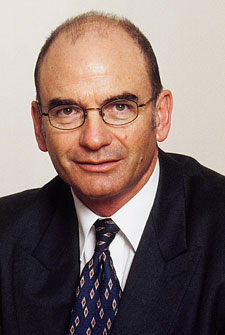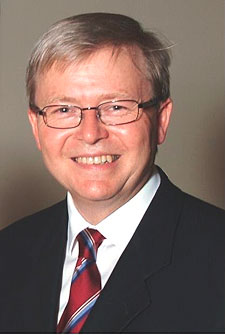 Anglicare Sydney CEO, Peter Kell says Kevin Rudd's announcement of
Anglicare Sydney CEO, Peter Kell says Kevin Rudd's announcement of
a 2020 Summit is a step towards solving the nation's long-term problems.
"Anglicare Sydney applauds the 2020 Summit initiative and the promise it holds for an
integrated, national approach to a policy agenda, informed by both community expertise and
understanding,” Mr Kell says.
"The Summit promises to be a valuable opportunity for people with a positive vision for
strengthening communities, supporting families and addressing social inclusion to share
ideas.”
 The Australia 2020 Summit, to be held at Parliament House in April, will being together 1000 of the nation’s “best and brightest brains” for a “national conversation” about 10 of the most challenging issues facing Australia’s future, Mr Rudd has said.
The Australia 2020 Summit, to be held at Parliament House in April, will being together 1000 of the nation’s “best and brightest brains” for a “national conversation” about 10 of the most challenging issues facing Australia’s future, Mr Rudd has said.
Those attending will be outside government, and drawn from the fields of business, academia, community and industrial organisations, and the media.
Ten groups of 100 Summit attendees will have one problem each to tackle, developing a long-term strategy which will be presented to the Government for consideration.
These issues include population, sustainability and climate change; rural Australia; indigenous Australia; and the development of a long-term national health strategy.
However Anglicare is most interested in another issue on the Summit agenda: that of strengthening communities, supporting families and social inclusion.
Mr Kell indicates that social inclusion is one problem of particular concern for Anglicare Sydney as it continues to work with some of the country’s most needy.
"Our current research into poverty indicates that for social inclusion to be achieved there needs to be a broad-ranging, multifaceted policy approach by government," he says.
"Anglicare Sydney's work with the homeless, the hungry, victims of abuse, the elderly, people with a disability and those with mental health issues, has led us to call for a national
strategy to address social inclusion.”
The issues continue…
Anglicare Sydney has also noted other social concerns which have emerged through the organisation’s work.
These include:
"¢ poor work-life balance - which is often related to mortgage stress, long working hours, child-care
costs, and support of ageing parents - all of which can lead to relationship and family
breakdown.
"¢ young people on the streets who are often escaping domestic violence and sexual abuse.
"¢ hunger among people on the margins, who despite emergency food relief are frequently skipping meals, often for a whole day.
Sometimes children in these families are going to school hungry with parents
anxious, stressed and ashamed that they cannot provide food for their families.
"¢ frustration among those caring for the elderly at home in accessing respite
at short notice.
A statement released by Anglicare has suggested possible solutions to these concerns include crisis and medium-term accommodation for youth on the streets, counselling, education,
training and employment, and the development of staff to work with elderly members of Australia's culturally and linguistically diverse communities.





















